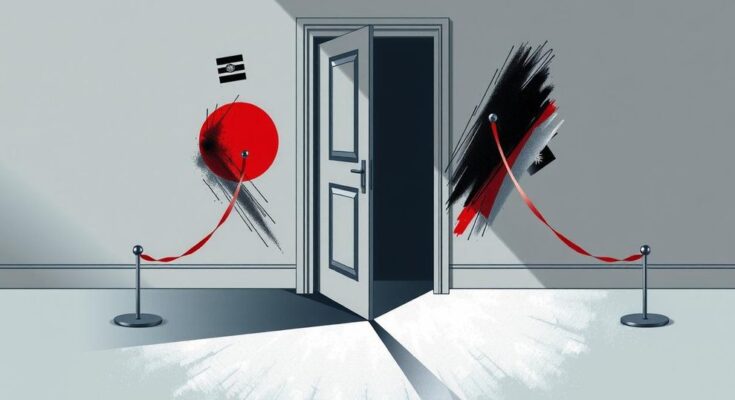Iran has rejected negotiations with the United States while facing sanctions under the Trump administration’s “maximum pressure” campaign. Deputy Foreign Minister Abbas Araghchi emphasized that negotiations would only be feasible without the imposition of additional sanctions, while Supreme Leader Ayatollah Ali Khamenei cautioned against engaging with Washington. The US’s previous withdrawal from the nuclear agreement continues to strain relations, even as new sanctions are imposed.
Iran has definitively refused to partake in negotiations with the United States under the prevailing conditions of what the Trump administration has labeled a “maximum pressure” campaign. Deputy Foreign Minister Abbas Araghchi articulated this stance, perceiving such discussions as a form of capitulation. He stated, “Lifting sanctions requires negotiations, but not under the framework of ‘maximum pressure,’ because in that case, it would not be negotiations but a form of submission.” Furthermore, Araghchi emphasized that Iran does not seek dialogue with a nation that simultaneously imposes additional sanctions.
These comments were made following a statement from Supreme Leader Ayatollah Ali Khamenei, who cautioned the Iranian leadership against engaging in talks with the United States, referring to such actions as “reckless.” Khamenei also cited prior failures by the US to honor agreements with Iran.
Iran and the world powers reached a nuclear agreement in 2015 aimed at limiting Iran’s nuclear ambitions in exchange for easing sanctions. However, former President Donald Trump’s withdrawal from this agreement in 2018 reinstated severe sanctions against Iran, disregarding opposition from European allies. On the same note, Trump has reiterated a commitment to achieving a “peace deal” with Iran, insisting that Iran should never acquire nuclear weaponry.
On another front, the United States Treasury Department has imposed new sanctions targeting an international network accused of facilitating the transportation of Iranian crude oil, allegedly valued in the hundreds of millions, to China. This action aligns with Washington’s ongoing strategy to exert economic pressure on Tehran.
The article addresses the tension between Iran and the United States, especially in light of the US’s sanctions and foreign policy decisions under the Trump administration. The push for negotiations has been significantly hampered by the historical context of the nuclear deal and the subsequent withdrawal by the United States, which has created distrust and hostility. Discussions about sanctions, nuclear capabilities, and international diplomacy are crucial for understanding the evolving dynamics of US-Iran relations.
In essence, Iran remains resolute in its refusal to negotiate under the current US sanctions regime, perceiving such negotiations as a guise for submission. The remarks from both Deputy Foreign Minister Abbas Araghchi and Supreme Leader Ayatollah Ali Khamenei underscore the deep-seated mistrust between Tehran and Washington. The backdrop of reinstated sanctions, alongside continued US pressure, further complicates the prospects for diplomatic engagement.
Original Source: shafaq.com




